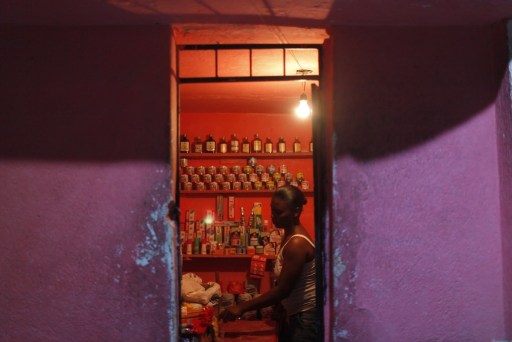By Bobb Rousseau, Diaspora Matters Columnist
The current Haitian centralized energy system is a financial liability for the country. It degrades generation and transmission operational performances, pollutes the environment, and increases costs of commercialization and deployment to the country’s most remote territorial collectives. The country needs a bold approach worthy of significant private investments to increase the efficiency, flexibility, and resilience of its energy system.

With the country’s centralized electricity system, approximately 80% of Haitian cities lack electricity. That leads to the country’s electricity system becoming so unreliable and so uneconomical that it creates public debts and prevents the country from achieving Goal 7 of the 17 Sustainable Developmental Goals of the United Nations, which is to provide affordable and clean energy to consumers.
More than two years ago, the promise of the government to connect cities with electricity within 24 months has proven unrealistic due to the electricity being a one-way business model. In this model, the central government is the major player in generating electricity, and the only one allowed transmitting and distributing electricity across the country. Such a centralized regulatory framework handicaps growth, repel private investment, weakens national development, and promotes massive government deficit. The government-owned electricity company, EDH, incurs a $200 million deficit a year consuming approximately 10% of the government budget.
The country needs innovative approaches to enable the population to have access to electricity and achieve development. To resolve those challenges, the country must allow a high level of decentralization while welcoming private investment in the entire electricity value chain whose three segments are generation, transmission, and distribution. One of the methods to achieve that goal is a proven method used by the US to finally electrify in the 1950s, which is the formation of regional electricity cooperatives that are owned by municipalities or even residents of a particular area.
Such a system is already present in Haiti with the establishment of the cooperative in Coteau, Roche-a-Bateau a few years ago. This cooperative simply needs to be expanded to achieve the required economy of scale to reduce electricity prices and become even more successful. Given that the National Rural Electric Cooperative Association, an American organization that represents the US electricity cooperatives, is present in Haiti, it could have easily helped the government implement that concept. It is unfortunate that the government is not following the regional cooperative model and chooses to pursue a microgrid concept that is not working.
About two years ago, a Haitian Diaspora-owned company proposed an even more ambitious plan to bring the three northern departments under one cooperative. The company would have made the private investment in the generation segment and the municipalities would build the transmission and distribution system. The Diaspora would help the municipalities obtain the needed financing for the latter two segments. The central government flatly refused.
Unfortunately, the present government is not only continuing the failed centralized electricity system, it is boldly reinforcing it. Instead of searching for private investments to build new plants, it is borrowing the money to build them throughout the country. As many prominent economists have pointed out, those initiatives will undoubtedly lead to more government deficit.
Decentralizing the Haitian electricity sector is a pragmatic business model that has the potential to revolutionize how the country generates, moves, and consumes energy. It will require that the central government deregulate the system to allow the formation of independent regional electricity cooperatives at the department level.
These regional cooperatives will be responsible to submit requirements to private investors to bid to install regional power plants that will generate and transmit electricity as well as community electric distribution agencies to provide power to residents while the government will be assessing and collecting applicable taxes on the cooperatives and the residents.
Haiti’s centralized electricity market is inflexible and economically hard to scale up while decentralizing it with regional grids will deliver unlimited new electricity connections in rural areas to meet the needs of the respective population.
The more energy generated, the more energy would be distributed to provide it to consumers at very affordable prices and more taxes local governments will collect.








